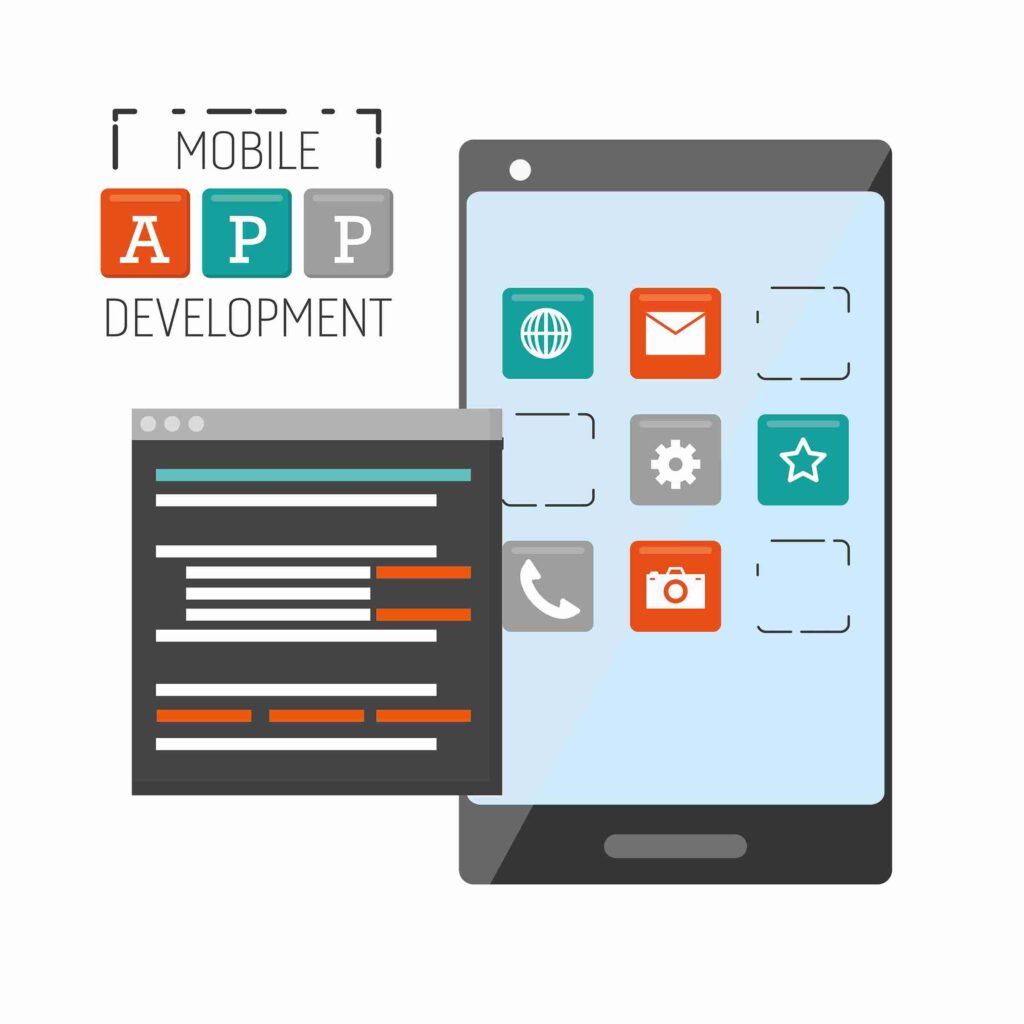Advanced Mobile App Development Solutions
Why Go Mobile?
The number of people using mobile based application is increasing immensely each day. To be sure that your business has kept its pace with the latest trends, IT Chimes has developed a strong team of Mobile Application Developers who are engaged with the latest technologies trends in mobility solutions in order to deliver the desired results.
Connecting to Mobile App helps your business to connect with a large number of audience with diverse backgrounds. The mobile app lets you deliver your service to this diverse audience directly. Such a feature is helpful to enhance your restaurant, health organization, eCommerce business, gift shop etc.

Why Choose Us?
- IT Chimes strives at providing outstanding and expert Android development solutions to its global clients.
- Provides powerful backend system to support the mobile App.
- The company uses best in class technologies and tools to meet the client’s requirements.
- The company aims at providing powerful and scalable apps for Android devices.
- The company has built a good number of Android phones and tablets for Ios and windows phones which includes Games, Basic and Complex applications, cross-platform mobile applications and more.
Collaborate with the Company to get expert services for your Mobile App development Needs.
Frequently Asked Questions
The time required to develop a mobile app depends on its complexity, features, and design requirements. A basic app might take 2-3 months to develop, while a more complex app with advanced functionalities can take 6-12 months or more.
The key stages in mobile app development include:
- Idea and Research: Defining app goals, target audience, and market research.
- Design: Creating wireframes, user interface (UI), and user experience (UX) designs.
- Development: Coding the app’s front-end and back-end functionalities.
- Testing: Conducting quality assurance (QA) to identify and fix bugs.
- Deployment: Launching the app on app stores.
- Maintenance: Updating the app, fixing issues, and adding new features.
- Native Apps: Built specifically for a single platform (iOS or Android) using platform-specific programming languages. They offer high performance and access to device features but require separate development for each platform.
- Hybrid Apps: Developed using web technologies (HTML, CSS, JavaScript) and wrapped in a native container. They can run on multiple platforms but may have performance limitations compared to native apps.
- Web Apps: Mobile-friendly websites that work within a web browser. They are easier and cheaper to build but lack access to many device features.
Choosing the right technology stack depends on your app’s requirements, platform, performance needs, budget, and scalability. Popular stacks include:
- iOS: Swift or Objective-C.
- Android: Kotlin or Java.
- Cross-platform: React Native, Flutter, Xamarin for building apps that work on multiple platforms.
Common challenges include:
- Device Fragmentation: Supporting a wide range of devices with different screen sizes and OS versions.
- Performance Optimization: Ensuring the app runs smoothly without draining battery life.
- Security: Protecting user data and preventing unauthorized access.
- User Experience: Designing intuitive and engaging interfaces.
- App Store Approval: Meeting the guidelines and standards set by app stores.
App security is crucial as it protects sensitive user data from breaches, prevents unauthorized access, and ensures compliance with privacy regulations. Developers should implement security measures like data encryption, secure authentication, and regular updates to address vulnerabilities.
Common monetization strategies include:
- In-App Advertising: Displaying ads within the app.
- In-App Purchases: Selling virtual goods, features, or subscriptions.
- Freemium Model: Offering basic features for free and charging for premium features.
- Paid Apps: Charging users to download the app.
- Focus on User Experience: Prioritize intuitive design and easy navigation.
- Test Thoroughly: Perform rigorous testing to ensure the app is bug-free and performs well on various devices.
- Keep It Updated: Regularly update the app to fix bugs, improve performance, and add new features.
- Optimize for Performance: Minimize load times and optimize resource usage.
- Ensure Security: Protect user data and maintain compliance with security standards.




